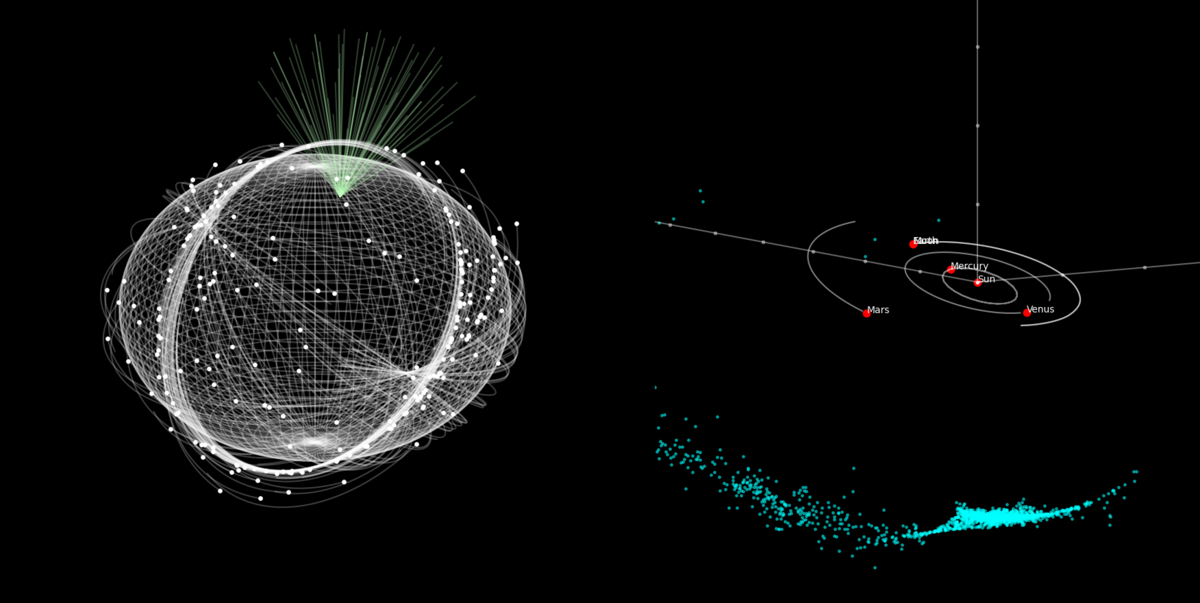
Postdoctoral position in space physics (dnr: 2.2.1-363/25)
Description
The large number of new satellites significantly increases the risk of collisions and requires careful mapping of space objects. The Swedish Institute of Space Physics (IRF) and EISCAT AB are developing signal analysis and experiments to make three-dimensional measurements of meteoroids and space debris, using the new EISCAT_3D research radar. Data processing for space objects will be developed in parallel with data processing for ionospheric physics and for example observations of auroral processes. This project uniquely combines modelling and analysis of radar data.
Job description
EISCAT_3D is a radar system for space and atmospheric research which has been under construction in northern Scandinavia since 2017. IRF and EISCAT are developing advanced technical methods to enable three-dimensional measurements of space objects using EISCAT_3D. Once fully developed, EISCAT_3D will be capable of measuring the orbits of space debris as small as a few centimetres. These space objects' orbits can be determined using a single measurement from EISCAT_3D's three receiving stations.
IRF will work closely with EISCAT AB to study:
1) how the highly variable ionosphere at EISCAT_3D's latitude affects the quality of orbit measurements,
2) how well ionospheric effects can be corrected by measuring space objects and the electron density in the ionosphere with a single radar experiment, and
3) what EISCAT_3D's antenna gain looks like at the antenna, group, and antenna field levels.
Data processing for space objects is being developed in parallel with data processing for ionospheric physics. This will enable better data products for both observation modes. The project's objective is to significantly enhance the capacity to measure and track space objects for the application of space situational awareness applications using the EISCAT radar systems. The methods developed will be described in peer-reviewed publications and made available to the international research community.
The three project objectives enable you to conduct unique research studies of the Earth's space debris environment and meteors.
Qualifications
Applicants must hold a Ph.D. in space physics, physics, or a related subject area combined with qualifications deemed equivalent by the employer. You should have good programming skills (Python, C++, or equivalent). Experience of signal processing, inverse problems, and/or numerical calculations in areas related to the work is an advantage.
We are looking for someone who wants to work in an intercultural and international environment and has a high ability to work both independently and as part of a team. Fluency in English is mandatory and it would be an advantage if you also have Swedish language skills. Working with radar data from space objects may require you to undergo a security clearance.
Terms
The position is situated in Kiruna, Sweden, and is offered on a three-year contract. The start date can be as soon as possible or as per agreement. Salaries are negotiated individually.
Applications should include a CV with a publication list, a personal cover letter outlining relevant experience, and the contact information of two professional references.
What we offer
We offer a workplace with flexible working hours, up to seven weeks of vacation per year, comprehensive healthcare including wellness programs, health benefits, and access to an on-site gym.
Equality, equal opportunity, and diversity are fundamental principles in our workplace. We work in an equality-integrated manner, meaning that gender and diversity aspects are considered in daily work and all decision-making processes.